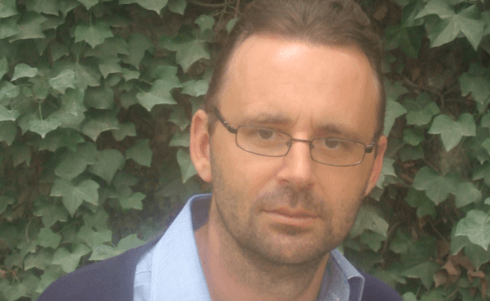European Canon of Values as the Foundation of the Digital Future
In 1962, when Jürgen Habermas, the last great philosopher of the Frankfurt School, presented his thesis “The Structural Transformation of the Public Sphere” in which he lamented the decline of public discourse in the form of rational, civilized discussions in the media and coffee houses, he could not have imagined how this structural change would not only continue unabated for over 60 years, but would also become more fiercely dramatic with every new technological development.
And this in the face of our European philosophy of life, which began 2,500 years ago in Greece and is based on the necessary critical discourse – but always with the lens of reason as an alternative to dogmatic positions.
Challenges of the digital parallel world
Over the past decades, the emancipatory potential of the political public sphere – in the sense of private individuals coming together to form it – has been lost. Consequently, the relatively stable and centuries-long construct of journalism has been challenged by new forms of censorship.
The economic and social upheavals we can observe today with the once so hopefully interpreted democratization of the public sphere through digitalization – to put it somewhat exaggeratedly in Habermas' terms – probably bestows a public discussion process with feudalistic conditions on us once again
By combining neoliberal economic practices with oligarchic ownership of global communication platforms, opinion-forming giants have firmly established themselves in the digital space in the span of just a few decades. They largely dictate the global public experience and manipulate what the public hears and sees based on their own rules (algorithms).
Long-established cultural norms have gradually eroded with the omnipresence of our digital parallel world. New production and working conditions have been euphorically accepted in the same way as the almost free use of smart electronic services for all situations in life.
Since 2000, the Internet has risen to become the primary source of information for news consumption and reception within less than a quarter of a century.
Moral decay in the digital space
Furthermore, huge advances in the development of artificial intelligence (AI) systems have once again shifted the gravitational focal points of digitalization.
A lack of transparency regarding the training of neural networks and a broad lack of understanding of how technology works has led to a significant challenge in comprehension. Specifically, we are often fundamentally confronted with explanatory deficits when it comes to categorizing digital cognition and data-based knowledge.
Perhaps the most serious challenge of the digital sphere lies in the technological nature of the systems and platforms used, which allow content to take on an unprecedented reach in a matter of seconds.
On the one hand, this has meant that essentially anyone – without any special technical skills or journalistic experience – can contribute to the generation of public opinion. This once celebrated fact of diversity of opinion has not lived up to its expectations.
Diversity and variety have fizzled out via an array of filter bubbles, which have accelerated our current moral decay in the digital communication space.
On the other hand, authoritarian states very quickly realized how easy it is to infiltrate the public opinion of the opposing political spectrum in Western democracies with disinformation and conspiracy theories and divide their societies thanks to the new reality of distribution.
Community of digital values
Against the backdrop of this assessment, however, hope has been growing for some time. Particularly in academia, but also in many civil society activity circles, the explosive threats of the networked world as described above have been increasingly recognized.
In an endeavor to increase public awareness of the need to shape digital humanism, people have begun to focus on reconstructing Europe as a unique digital community of values.
Europe has always had its own ideals from the very beginning. Its name, Europa, derives from Greek mythology: Zeus, in the form of a white bull, wooed the daughter ‘Europa’ of the Phoenician king Agenor and abducted her to Crete.
Over more than 2,000 years of history, the continent has developed its own unique values, with human dignity at the core. Today's European values are based on different lifeworlds and the attitudes shaped by them, starting with the birth of Christianity, which emerged from Judaism and emphasizes the belief in mercy and love of one's neighbor.
Later, these values were shaped by the philosophers of ancient Greece, to whom we owe the form of government and democracy that still prevails today. This was followed by Roman law as the precursor to today's ‘rule of law’ and the deepening and renewal of this cultural heritage during the Renaissance.
During the Enlightenment, individuals were empowered to shape their lives freely, and in the 20th century, after the catastrophes of the world wars, the continent finally united – in its enviable diversity of peoples and languages – in the greatest peace project in human history.
In this context, it is interesting to note that European values developed in their uniqueness based on a 2,500-year-old philosophy of life, which always focussed on reason as the determining element for all discourse.
The values were able to develop precisely because the initial judgements and world views, which at the time also included claims to power, were questioned in later historical epochs and broken up in a directional way.
For example, it was secularization, the separation of church and state, that gave religions back their original purpose as a humane force.
Despite Europe's cultural diversity, it is also astonishing to note what the Spanish philosopher Ortega y Gasset identified at the beginning of the last century: Four-fifths of our intellectual property is European common property, which means that our essential values and interests are identical.
Meeting human needs
The European Union has defined itself as a union of values based on Article 2 of the Treaty on European Union (TEU) and the Charter of Fundamental Rights of the European Union.
It is therefore committed to respecting human dignity, freedom, democracy, equality, the rule of law and human rights, including the rights of persons belonging to minorities. These values characterized by pluralism, non-discrimination, tolerance, justice, solidarity and equality between women and men are common to all member states.
The ‘Citizens, Equality, Rights and Values’-program serves to promote the six values and fundamental freedoms enshrined in a constitution similar manner and has an allocated budget of 1.55 billion € for the period 2021-2027.
Thus, this program very clearly underlines the revival of the European culture of values – especially against the background of a partially only reactively judged adaptation of the digital space to generally applicable legal standards.
In 2023, with its ‘Declaration on Digital Rights and Principles for the Digital Decade’, the European Commission further focussed its strategies to promote a European path of digital transformation based on European values as well as fundamental rights and laid down a universal set of values.
These guidelines place people at the center and are aimed at promoting solidarity and inclusion, freedom of choice when interacting with new technologies, participation in democratic processes, sustainability and safety as well as security in dealing with the rapidly developing digital services.
In doing so, the European Commission has also responded to the appeal of the founding father of the World Wide Web, Tim Berners-Lee, to frame unbridled digitalization in accordance with the rule of law in order to protect our democracies:
‘We must shape technologies according to human values and needs instead of allowing technologies to shape people’ is also written in the ‘Vienna Manifesto for Digital Humanism’ and makes it clear ‘that Europe could lose everything that makes it strong if we do not take up this fight now.’
Public awareness
In recent years, several scientific initiatives have attracted social attention and have been reflected in public awareness: The ‘AlgoSoc’ (Public Values in the Algorithmic Society) priority research program, funded in the Netherlands and in which the University of Amsterdam, Delft University of Technology, Erasmus University Rotterdam, Utrecht University and Tilburg University are involved with both natural sciences and humanities faculties and institutes, is investigating the implementation of solutions in the socially highly relevant areas of justice, health and media.
These solutions enable the translation of desired public values into institutional design and legal frameworks for automated decision making and trigger desirable individual-social effects.
The ‘Social Europe’-project ‘Towards a European Digital Public Sphere’, the ‘Eurostack’-initiative as a new industrial strategy or ‘Gaia-X’ with the important innovative concepts of sovereign data spaces are all pursuing new approaches to achieve a necessary digital sovereignty for Europe.
At its core, this sovereignty is not subject to the dominance and distortions of the US digital industrial giants such as Google, Apple, Facebook, Amazon and Microsoft or technological dependence on emerging Asian platform operators.
The brilliant Dutch political scientist Marietje Schaake, non-resident fellow at Stanford's Cyber Policy Center and the Institute for Human Centered AI, former advisor to the UN's High Level Advisory Board on AI and Member of the European Parliament on Tech Policy between 2009 and 2019, has summed up in her book ‘The Tech Coup: How to Save Democracy from Silicon Valley’, published this year by Princeton University Press, how the loss of all democratic governance on the internet came about and how we can now regain sovereignty by returning to the only self-correcting system, which is democracy. We should all make this our motto:
‘Democracy works best when people are given the opportunity to constantly monitor and repair the kinks in the machinery’!
International experts
For this newsletter, we have once again been able to bring in two special international experts: Prof. Pierre-Antoine Chardel, a French philosopher and sociologist from Paris who specializes in the ethical and political dimensions of digital technologies, and Ivana Bartoletti, Vice President and Global Data Privacy and AI Governance Officer at Wipro.
In his contribution ‘The Eroded Trust of the Flow Society – a Major Ethical Challenge in the Hypermodern Era’, Prof. Chardel discusses the reinstallation of trust as an essential component of our individual and collective existence and as a condition of every exchange through 1), accompanying face-to-face interactions, 2), responsible technology practices by means of transparent and interdisciplinary knowledge and visualisation tools, and 3), the transformation towards an alternative algorithm policy based on the integration of citizen-based recommendations.
In her article ‘EU Values as a Catalyst for European AI growth? – a Balanced Approach to Promoting a Trust-Based, Competitive Digital Economy’, Ivana Bartoletti refutes the argument – which has been repeatedly put forward by tech lobbyists and regulatory critics in the intensified AI governance debate – that the European focus on the ethical design of regulation is an obstacle to technological development. She proposes there will only be significant opportunities for a more competitive digital economy if AI growth is harmonized with European values.
As editors, we hope you all enjoy reading this newsletter. Further, we hope that the European values will once again be set as the foundation of our continent’s digital future.

Head of Center for Digital Safety & Security
AIT Austrian Institute of Technology GmbH

Specialised in (net) technology, telco business products, sponsoring,
internet, cyber security, new media and disinformation.
Ars Longa - Science Communications, Czech Republic
Hier finden Sie den Beitrag Europäischer Wertekanon als Fundament der digitalen Zukunft in deutscher Sprache.

